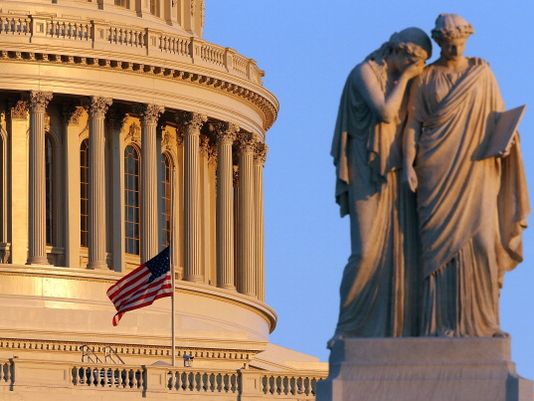Budget deal puts squeeze on financial regulators
Watchdog groups say the budget compromise unveiled by Congress this week drastically underfunds financial regulatory agencies and undermines the sweeping reform legislation that grew out of the financial crisis.
"It puts Americans at needless risk of another financial crisis," says Dennis Kelleher, president of Better Markets, an advocacy group.
The spending bill includes $1.35 billion for the Securities and Exchange Commission, $29 million above the fiscal 2013 level but $324 million below President Obama's budget request.
But Kelleher's biggest concern is the low funding levels that the $1.1 trillion fiscal 2014 spending bill allocates to the Commodity Futures Trading Commission, which is tasked with overseeing derivatives that were at the center of the crisis. The bipartisan bill provides $215 million to the CFTC, $100 million less than President Obama's budget request and $93 million less than the fiscal 2013 budget, according to the CFTC.
Yet, the notional value of the markets the agency will regulate is mushrooming tenfold from $45 trillion in commodities swaps to a nearly $400 trillion derivatives trading industry, he says.
"It's like you're taking half the cops off the street, and they don't have guns, radios or bullets," Kelleher says. "The CFTC is literally crippled and unable to do its job."
Lisa Donner, head of Americans for Financial Reform, contends the CFTC budget was slashed at the behest of Wall Street lobbyists seeking to undercut the effectiveness of financial reform. The budget savings are so miniscule that "it's not plausible that the real issue is budget numbers," she says
Derivatives are securities whose value depends on the movement of something else, such as interest rates or commodity prices. Derivatives tied to mortgage-backed securities plunged during the financial crisis as the housing market crashed, threatening the survival of firms such as insurance giant AIG.
Dodd-Frank financial reform requires derivatives, whose sales largely had been secret, to be traded on regulated exchanges, increasing competition and lowering prices.
The budget deal allocates more money to the CFTC than the $180 million originally requested by the Republican-controlled House Appropriations Committee. In a statement, acting CFTC Chairman Mark Wetjen largely applauded the additional funding.
"This increase means the CFTC will be better equipped to fulfill our mission — ensuring the derivatives markets work for market participants and the public," Wetjen said.
In a speech last month, Treasury Secretary Jack Lew lambasted low funding proposals for the financial regulatory agencies.
"After failing in efforts to block or roll back reforms, some in Congress would now simply starve the regulatory agencies of funding so they lack the resources to do their job," Lew said.










